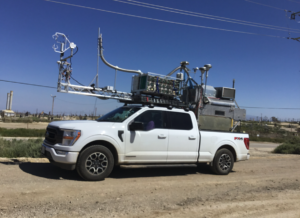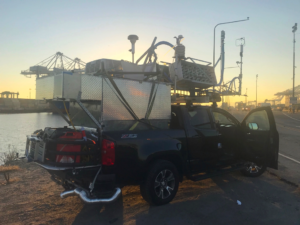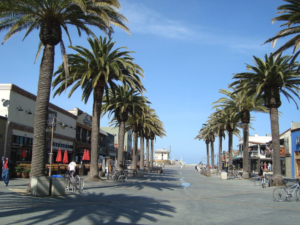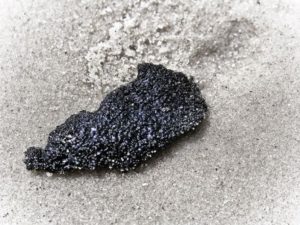NASA has funded BRI to launch a scoping study focused on tracking and reducing major ports’ greenhouse gas (GHG) emissions. Globally, ports contribute significantly to global carbon dioxide emissions, accounting for approximately 3%. The project will demonstrate a prototype Carbon Monitoring System (CMS) to measure GHG emissions and trends. This study will evaluate monthly data spanning a year and closely coordinate with policy agencies, co-investigators ABS, and collaborators at SCAQMD to facilitate CMS-Port adoption.
The prototype CMS will use satellite data to derive GHG emissions and trends from sources around the Ports. The BRI has identified many of these sources over our years of surveying the Port with SISTER, our mobile air quality laboratory. SISTER (Standard Instrumentation Suite: Truck Enabled for Response) measures meteorology, including 3D winds and a range of trace gasses while under motion at up to highway speeds. SISTER will collect in situ (ground-based data) for this study.

The Aerospace Corporation and their airborne remote sensing tool, Mako, are also involved in this project. Mako will collect longwave infrared imaging spectrometry remote sensing data, which (along with SISTER’s data) will be used to validate the satellite findings.
The Ports CMS focuses on The Ports of Long Beach and Los Angeles, the Ports, and surrounding heavy industry, including refineries, coke production, wastewater treatment, etc., all contributing GHG emissions. The Ports are the largest in the western hemisphere and the largest air pollution source in LA, providing an ideal model Ports CMS for application to other ports nationwide.
This project will provide data on how GHG emissions from the ports affect surrounding areas and the potential benefits to glean from port electrification. The Port CMS will provide a baseline to reference the efficacy of reducing carbon emissions of (already-funded) Port electrification and other policies, including green shipping corridors. A report produced by ABS will provide the regulatory rationale for Port and shipping GHG initiatives, such as green corridors. This report will show the community connection to port decarbonization and be positioned as an industry-standard reference document. The BRI team is excited to implement this study with NASA and looks forward to sharing our findings with the community!



